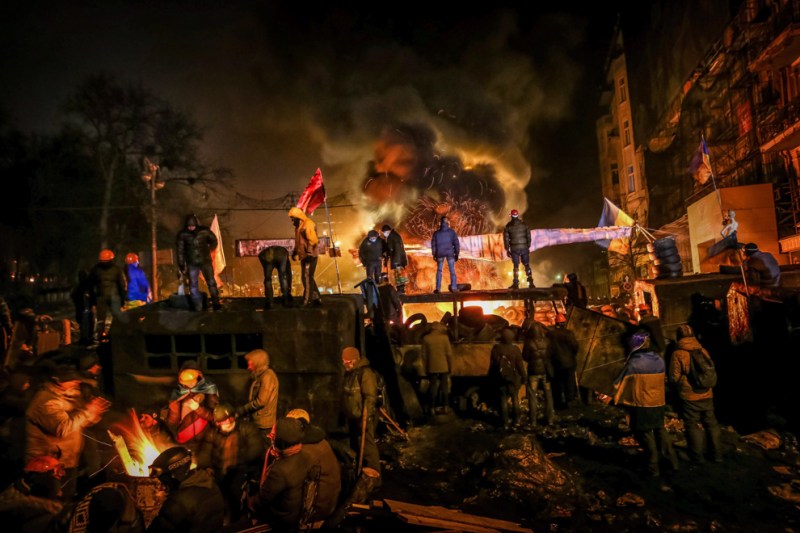Back in October, Netflix released “Beasts of No Nation,” its first original feature film. Telling the gripping story of an African warlord and his band of child soldiers, the movie generated some premature Oscar buzz. Idris Elba’s performance in particular was noted as being worth of a Best Supporting Actor nomination.
He didn’t receive it. Now, the Academy is attempting to deal with the problems behind the #OscarsSoWhite hashtag, and Netflix executives are most likely scratching their heads. They’ve been able to pick up major awards for TV, but their first attempt at a feature film was completely shut out.
All’s not lost for Netflix, however. Although often overlooked, the Documentary category features one of Netflix’s own — “Winter on Fire: Ukraine’s Fight for Freedom” — the fourth Netflix documentary to be nominated in recent years.
The film opens with a brief animated history lesson, which seems to be a popular way to clue in western audiences, seeing as “I Am Malala” used the same technique. In late 2013, Ukrainian president Yanukovych promised the people of Ukraine that he would sign an agreement with the European Union, but instead made one with the Russians. When the EU agreement didn’t go through, Ukrainians gathered at Maidan Square in Kiev to protest. Before long, the movement was thousands strong.
“Winter on Fire” tells the story of the entire protest-turned-revolution, shot over the course of the more than 90 days when protesters occupied Maidan. The documentary feels like a real-life action movie, with the cameras capturing incredible images of both human joy and suffering. The protesters remained locked in conflict with the Ukrainian police for the months that they occupied the square, and the police brutality captured by the film is certainly shocking. Some of the images are similar to those from the 2011 protests in Cairo, and “Winter on Fire” has been appropriately compared to “The Square,” a documentary recounting Egypt’s revolution.
Perhaps by virtue of being so involved with the movement on the ground, “Winter on Fire” is not exactly objectivity — which isn’t necessarily a bad thing. Its intent is not to provide political analysis, but to describe the warfare that a government waged on its people. The film occasionally cuts to interviews conducted after the protests, with participants recalling what happened. The effect is inspiring, as real people recount why they braved the cold and dire conditions depicted in the documentary.
As an homage to the numerous protestors who lost their lives, the documentary also places a clear emphasis on communicating the values of the protests. The generation born in the ’90s only knows a Ukraine free from Russia, and it believes in that freedom. Ukrainians of all faiths and walks of life are shown creating barricades and linking arms in a manner reminiscent of “Les Misérables.” Of course, at the end of this protest, the Crimean conflict emerged. So while the film ends with triumphant protesters celebrating the resignation of their president, there isn’t any full analysis of why said conflict persists in Ukraine.
Evgeny Afineevsky and Den Tolmor aren’t even alone representing Netflix. “What Happened, Miss Simone?” about the black soul singer Nina Simone was also nominated in the same category. While Netflix hasn’t figured out the recipe for an Oscar-worthy fiction film, it seems to have the documentary category covered.
Contact Reed Canaan at rcanaan ‘at’ stanford.edu.
